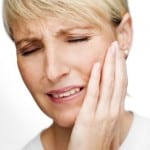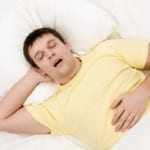 Teeth grinding, or bruxism, is a fairly common problem, with most people doing it in their sleep! This makes it difficult for you to stop the habit by yourself, so consulting a dentist is often the best way to deal with and prevent any damage to your teeth or even your jaw. Bruxism doesn’t just cause problems in the obvious areas though, as it can also cause headaches.
Teeth grinding, or bruxism, is a fairly common problem, with most people doing it in their sleep! This makes it difficult for you to stop the habit by yourself, so consulting a dentist is often the best way to deal with and prevent any damage to your teeth or even your jaw. Bruxism doesn’t just cause problems in the obvious areas though, as it can also cause headaches.
Why do I grind my teeth?
Often it is caused by stress, so the best way to deal with bruxism is to deal with the cause of the stress. Obviously, this is not something that a dentist would be able to help you with, but therapy or counselling can take some time. Meanwhile, you’re continuing to do some damage to your teeth and giving yourself headaches in the night. So, if stress is the cause of your teeth grinding, by all means go and see a counsellor, but you should probably also see a dentist too, to get some short-term help.
Subconscious tooth grinding
But if it happens in your sleep, how do you know that you’re doing it? Well, if you wake up in the morning with an aching jaw, suffer from unexplained headaches, have difficulty eating first thing in the morning or have noticed damage to your teeth, then you could be suffering from bruxism. The other give away is that often your partner will notice before you that there is a problem. If you think that stress might be responsible for your teeth grinding then your dentist can try out a few things to help you prevent further damage to your teeth. You could wear a mouth guard at night, so that your teeth aren’t rubbing against each other, but up against smooth, soft rubber instead. There are also devices that can hold your teeth apart during the night. This is especially useful if your bruxism is caused by a sleep disorder. Although you could use these devices for your whole life, it is probably more advisable to seek a solution that will resolve the issues behind your teeth grinding, rather than just stopping it from being a problem!









